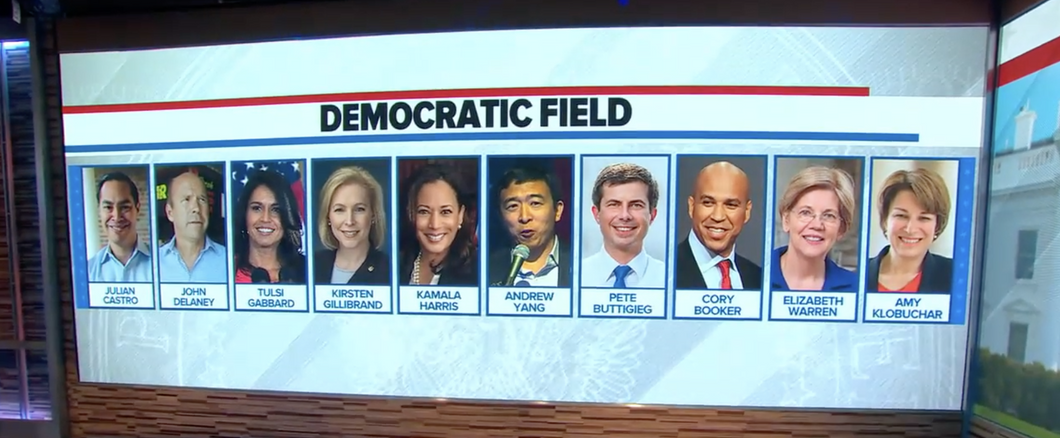Elizabeth Warren. Kamala Harris. Cory Booker. Bernie Sanders.
Those are but a few of the names that will dominate the news feeds for at least the next year (if not longer) as the United States 2020 presidential election cycle gets underway. At least 12 candidates - including the four US Senators named at the beginning of this piece - have already launched their bids for the Democratic Party's presidential nomination at the time of writing, with more almost certain to join the race later this year.
With so many options in the Democratic primaries, voters' decisions are going to come down to numerous factors which included but are not limited to which policies and issues the candidates make the centerpieces of their campaigns, the voters' ability to identify with specific candidates and their backgrounds, and how viable it would be for a candidate to beat President Donald Trump in a general election match-up.
But tied to these factors is one overarching question: should Democratic voters nominate a candidate who will appeal towards the middle ground with Republicans and conservatives or should they choose a bold progressive that will push hard for decidedly liberal policies?
Much of this question is based on the debate over whether nominating a moderate (such as Amy Klobuchar or John Delaney) or a staunch progressive (like Bernie Sanders or Elizabeth Warren) is the best move for the party and the country as a whole. On one hand, some voters feel that a moderate could help stabilize American politics at a time of rapid growth in polarization along partisan and ideological lines; they fear that a fiery, very left-wing candidate could make politics in Washington even more toxic by driving many conservatives even further to the right.
On the other hand, different voters see nominating a staunch progressive as the best path to getting major reforms through that might otherwise go ignored; for them, a return to the partly fabled "middle" is unlikely and carries the risk of being a false peace that ignores the underlying issues that brought America into such toxic partisanship and inequality in the first place.
The question, however, is not simply framed within the typical moderate-versus-radical debate (which, to be frank, is rather lacking in nuance and is ill-suited to describing many of the 2020 candidates). In a New York Times analysis of the 2020 race so far, reporter Alexander Burns notes that there is a divergence in tone over how to win the election that is "separating candidates of disparate backgrounds and ideologies into two loose groups: fighters and healers." According to Burns, the "fighters" seek to gain traction by aggressively challenging Donald Trump and his supporters while "healers" seek to do so by taking on a more reconciliatory tone to mend divisions in the country.
While the opening caucuses in Iowa and the first primary in New Hampshire are still months away, the inner conflict over whether to pick a fighter or a healer. The choice that those voters make will resonate all over America come November 2020, and likely even beyond then regardless of which party wins the general election for president. The soul of the liberal movement and of American politics as a whole is at stake in these primaries.
It certainly weighs on my mind as I try to choose. I think America needs major reforms now and in the coming years that have been laid out by progressives, but I don't want to help escalate polarization and unnecessary instability. Can sincere, effective reforms that address the problems currently facing America be reached without alienating so many people? I would hope so, but the path to such an outcome is unclear.
I understand that it is naive to think passing any reforms can be done without some sort of conflict. I also know that aforementioned labels - moderate, progressive, fighter, healer, and others - are not absolute and can be applied in different ways (and in some cases simultaneously) to a candidate.
Is there some way it can be done without furthering an us-versus-them mentality dominated by ideologues across America for years to come? Can voters choose somebody who is both a fighter and a healer? Does that kind of candidate exist? These are the questions on my mind as the presidential race picks up full speed.

















